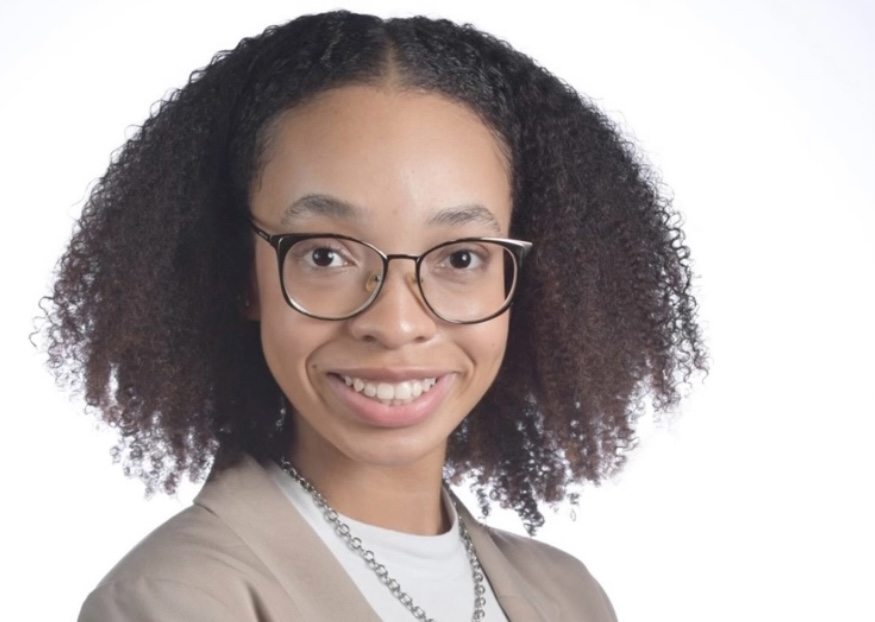Guest Voice: Why I’m pursuing a degree in clinical psychology
Growing up with sickle beta thalassemia made me more empathetic
Written by |

Michelle Harlan is a second-year doctoral student pursuing a PhD in clinical psychology at George Mason University. She earned a Bachelor of Arts in art history from Elon University and a Master of Professional Studies in clinical psychology from the University of Maryland. She worked as a research coordinator at Children’s National Hospital in Washington, D.C., and passionately advocates for the sickle cell disease community, consulting for pharmaceutical companies and speaking at National Institutes of Health events. She enjoys traveling with her partner, exercising, and spending time with loved ones.
“Nathan, wake up,” I whispered to my sleepy friend while repeatedly poking him.
“Michelle, it’s OK, let him sleep,” our teacher responded, shaking her head.
It was the middle of second grade and Nathan, one of my good friends, had recently been diagnosed with leukemia. He was receiving chemotherapy at the same children’s hospital where I saw my hematologist for sickle beta thalassemia. For the rest of the school year, when Nathan did come to school, we talked about all of the people we both knew in the hematology/oncology suite, the magnetic sandbox table in the waiting room, and our favorite nurse who would stick you perfectly the first time.
By second grade, I wasn’t new to having sickle beta thalassemia, going to see my doctor every month, or being hospitalized for acute chest syndrome a couple times a year. But I was new to having a friend who was experiencing a major health condition, too.
Learning from an early age

Michelle Harlan explores Hanging Rock State Park in North Carolina in 2020. (Courtesy of Michelle Harlan)
Now, at 27 years old, I am able to see how isolating sickle cell disease was for me as a child, and how many other children and teenagers with the disease might feel as well. At this age, I better understand the importance of an open and communicative medical team, friends and family that are loving and supportive, professors and employers who are empathetic and flexible, and access to mental health services and resources for sickle cell patients across all age groups.
While I attribute my reason for going into the mental healthcare field to growing up as a ballerina, not speaking about mental health openly in the Black community, and watching a family member struggle with severe mental illness when I was a child, I also attribute it to my own experience with managing a chronic disease from a very early age.
My sickle beta thalassemia story starts when I was 6 months old and first hospitalized due to complications of the disease. My parents, who are both in the healthcare field, were prepared and assertive, making sure I always received the best care, a privilege I’ve always been grateful for. I learned from an early age the best ways to take care of myself by managing pain without narcotics unless in the hospital, staying hydrated and warm, and avoiding situations where I’d likely land in the hospital (like the summer trip through Europe that I begged my parents to go on in high school, to no avail).
My real journey began when I decided to go to college out of state in North Carolina, away from my family in Atlanta, Georgia, to study psychology. In college, I wanted to prove to myself that I was normal and could be like any other college student, go to parties, pull all-nighters, study abroad, and join a sorority. For a time, this strategy worked.

Michelle Harlan takes a trip to Scottsdale, Arizona, in 2022. (Courtesy of Michelle Harlan)
I studied art history, psychology, and Italian, studied abroad for a semester in Florence, Italy, became a member of Alpha Kappa Alpha Sorority, volunteered on campus, had two jobs, and went to parties, all while leading a double life of having a chronic disease. I visited my hematologist an hour away from campus multiple times a year, landed myself in the hospital at the end of countless semesters of working myself into the ground, and overall, failed to devote the necessary time and energy into my mental health.
By the spring of 2020, which was my senior year in college and the beginning of the COVID-19 pandemic, I had many realizations. Firstly, after seeing so much pain, suffering, and death going on in the world, I wanted to make a difference by becoming a clinical psychologist. Secondly, I would have a lot more school to do. Finally, if I were to help anyone overcome anything, I first had to help myself by working through those feelings of isolation and by starting therapy.
At this point in my life, I’m a second-year clinical psychology doctoral student living in Washington, D.C. I study eating disorders and suicidality in children and adolescents. Eventually, I’d like to work in an academic medical setting where I can work with youth who experience co-occurring eating disorders and sickle cell disease.
I manage my sickle beta thalassemia the best I can and better understand my limits compared with when I was 18. I still go to therapy every week to talk about the challenges I face as a student who manages sickle beta thalassemia, and I finally know that “normal” is overrated.
To submit your own Guest Voice for publication on Sickle Cell Disease News, please email your idea to our columns manager at [email protected] with the following included in the subject line: “Guest Voice: Sickle Cell News.”
Note: Sickle Cell Disease News is strictly a news and information website about the disease. It does not provide medical advice, diagnosis, or treatment. This content is not intended to be a substitute for professional medical advice, diagnosis, or treatment. Always seek the advice of your physician or other qualified health provider with any questions you may have regarding a medical condition. Never disregard professional medical advice or delay in seeking it because of something you have read on this website. The opinions expressed in this column are not those of Sickle Cell Disease News or its parent company, Bionews Services, and are intended to spark discussion about issues pertaining to sickle cell disease.




Fleming Hettie
Dear Ms. Harlan,
My church, Mt. Calvary Baptist Church in Rockville, Md is having a Real Talk Sickle Cell event on Saturday, June 14th, 2025 from 10a-1p. Will you be willing to speak? Your story is so inspirational and I know others would like to hear it. Thank you
Kathy S.
Hi Ms Harlan,
Thank you for sharing your journey and your desire to continue your education in the mental service industry. I also have sickle beta thalassemia and our paths are very similar. Growing up in the 60-70’s counseling and therapy were not an option and it was a disease I dealt with silently, outside of my family. Attending college was an awesome experience but the ability to carry a full course load was sometimes overwhelming. I also pledged Alpha Kappa Alpha Sorority Inc. and majored in sociology/ psychology. I have become involved in the Sickle cell awareness community.
Blessing to you, as I know you will make a powerful impact in a warrior or care giver’s life. If you ever need to talk to an “older” warrior please reach out.